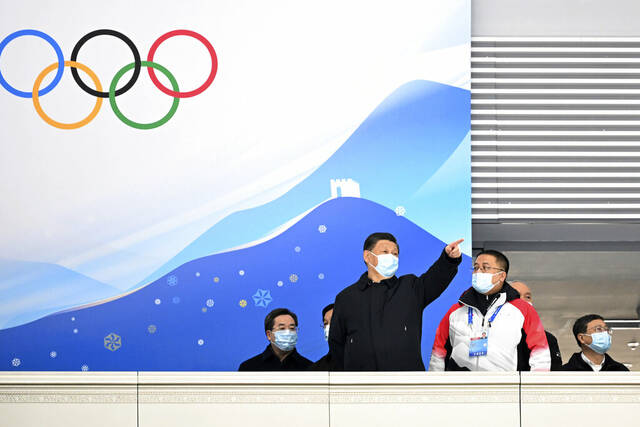My isolated summer cabin in the Himalayas of Tibet was raided this summer, when occupying Chinese Communist Party police stormed every hotel on the Tibetan plateau to force foreigners against their will into ambulances and clear them from the region.
I knew instantly they were doing this to tighten their iron grip on Tibet without witnesses, and when I tweeted about their malevolent actions, the CCP police harassed me, interrogated me and deported me (I had already bought a ticket to leave, but they needed to save face).
Tragically, in the months that followed, my suspicions were proven right, as China launched a brutal campaign of oppression in occupied Tibet.
In Kardze Tibetan Autonomous Prefecture, where I’d been studying Tibetan, hundreds of Tibetans — monks and laypeople alike — were arrested for possessing photos of His Holiness the Dalai Lama, and language rights activists were similarly detained and denied proper food and medical care. Chinese authorities also banned public discussion about a popular Tibetan religious teacher, Tulku Tenzin Delek (who mysteriously died six years ago in a Sichuan prison), by shutting down an online chat group devoted to his memory and deleting him from official religious histories.
Elsewhere in Tibet this fall, Tibetan writer and educator Go Sherab Gyatso was given a 10-year sentence for expressing loyalty to His Holiness the Dalai Lama.
Intensifying their cultural genocide and Sinicization of Tibet, Beijing also removed a guarantee of the rights of minority children to be educated in their native language and banned formal and informal lessons in Tibetan — forcing even preschool children to learn in Mandarin Chinese.
They demolished Tibetan schools and even officially ordered Tibetan monks and nuns to speak to each other only in Chinese. Religious rituals were banned, religious festivals canceled and monasteries closed. China also revoked permits for Tibetan nomads to use their traditional grazing lands.
Just a few weeks ago, Chinese authorities took a page out of the Taliban’s playbook and demolished a 99-foot Buddha statue in Drago County — then arrested and tortured anyone who spoke out on social media against this desecration. And just this month, the CCP told Han Chinese Buddhists practicing Tibetan Buddhism at Tibet’s largest monastery to convert to Chinese Buddhism or return to a layman’s life.
This new wave of repression has not been limited to Tibet. As part of China’s “Cultural Revolution 2.0” rolled out this fall, effeminate “sissy” men have been banished from television, “nonheterosexual” university students have been put on campus lists, entrepreneurs have had their wealth seized, celebrities and sports stars (like Peng Shuai) have been disappeared, young people have been limited to three hours of online gaming a week, English education and tutoring have been sacked, the national curriculum has been redesigned to promote patriotic education, and textbooks have been reengineered for Xi Jinping Thought.
Chinese state media has praised this “profound revolution.”
These alarming policies, coupled with China’s belligerent wolf-warrior diplomacy with the United States, Japan, Australia, Taiwan, the United Kingdom and Lithuania, are intended to distract from China’s slowing economy, bursting real estate bubble, unsustainable debt, declining birth rate, food security crisis, climate disasters and pension crisis.
I’d gone to China with an open mind, interested in learning more about the Chinese Communist Party, but I never expected to get such a rare “behind the red curtain” education in its treachery. I left China with the firm conviction that the CCP must be abolished for the good of the Chinese people, all of those whose lands they occupy and the world.
I am not watching the Winter Olympics in Beijing. Boycotting the Olympics is the least that I — and people of good conscience — can do to protest China’s grave human rights violations in Tibet, Xinjiang, Hong Kong, Taiwan and Inner Mongolia — and against their own people.
Instead of watching the games, I am thinking about the millions of poor souls murdered by the Chinese Communist Party in the past and present, the brave political prisoners currently languishing in Chinese jails and reeducation camps, the indigenous people whose lands the CCP occupies, and the many in exile and the diaspora who the CCP threatens and harasses.
And I am thinking of the Chinese public — who are also deprived of all freedom and human dignity by the CCP.
It is time for the world to unite and put an end to China’s countless crimes against humanity — our shared future depends on it.
Emily Jane O’Dell is a writer and professor. She is the author of “The Gift of Rumi” and currently working on a memoir on her time in China and Tibet.








